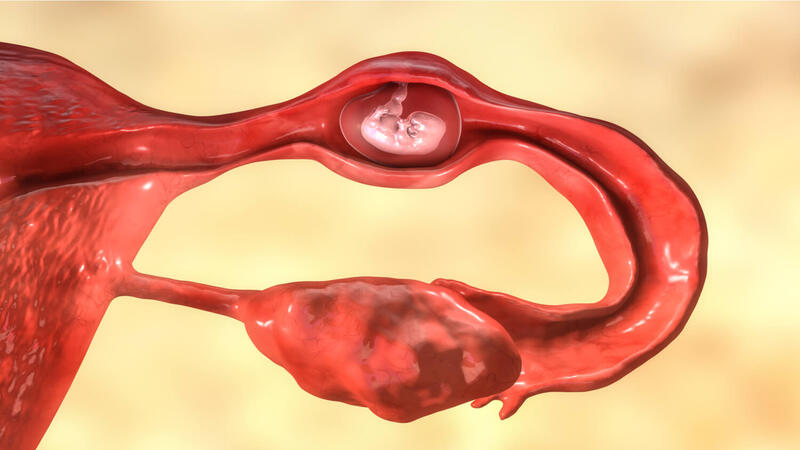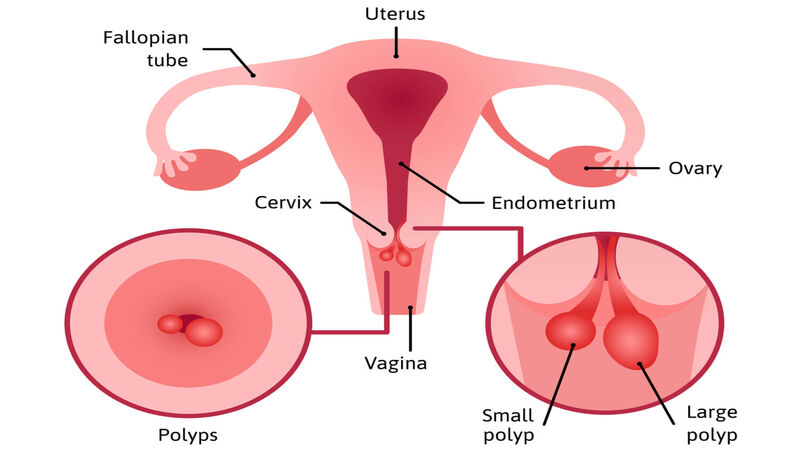
Spotting or bleeding during pregnancy is quite common. Most expectant women experience some sort of spotting or bleeding during the first trimester. Some even have spotting throughout the entire term. However, if the spotting is vaginal, it indicates a serious problem and must be reported to the doctor immediately.
This article sheds some light on the causes of spotting or bleeding during pregnancy. We also provide the causes of serious bleeding during pregnancy, which tells you the necessity of this addressed by the doctor immediately.
[joli- toc]
Bleeding/Spotting In The First Trimester
Within the first 12 weeks of pregnancy, a quarter of women experience some bleeding. You will be surprised to know that most of the time, bleeding or spotting is an unexplained symptom unless it is vaginal. Many mothers-to-be report this problem but find their babies perfectly safe for conducting the tests.
Spotting due to vaginal bleeding can indeed be a grave issue, but it is in the rarest of rare circumstances. Sometimes, the red stains are not even blood! Women may deal with redness of blood from food preservatives, colors from antibiotics, or having a beet diet (beeturia)! Gynecologists frequently consult and comfort women who complain of bleeding.
6 Common Reasons For Bleeding During The First Semester
Following are some of the common causes of bleeding during the first trimester.
1. Miscarriage

It is quite natural to freak out and think of the symptom as a miscarriage. Consult your doctor before arriving at a conclusion.
2. Implantation Bleeding
Lasting from about 4 hours to a few days, implantation bleeding happens within the first 6-12 days as the fertilized egg implants itself.
3. Breakthrough Bleeding
This refers to the unique condition when the hormones controlling your menstrual cycle trigger the blood and charge. Often accompanied by PMS-like symptoms, this bleeding can happen during, the week of pregnancy – almost in sync with the menstrual cycle.
4. Ectopic Pregnancy

The egg fertilizes itself on the lining of the uterus, however, if it plants itself on the outside of the uterus, on the Fallopian tube, it can be life-threatening. Statistics show that such cases are only 1%, but this can also cause bleeding.
Ectopic pregnancies refer to the situation when the fertilized egg is outside the uterus. The blood is dark and watery, and you need to contact the doctor immediately. Read more about it here.
5. Molar Pregnancy
It is a very rare symptom where the embryo does not form, but the placental cells continue to multiply. Your doctor will immediately remove the multiplying cells.
6. Cervical Infection
Any sexually transmitted infection, such as chlamydia, or herpes can cause bleeding in the first trimester. Consult your doctor and take the pills; that’s it!
Bleeding In The Second And Third Semesters
Bleeding in the second and third pregnancy can be serious, and calls for immediate medical intervention. You must remain calm and lie down till medical help reaches you.
Please look up the following aspects to understand the symptom of bleeding during the later stages of pregnancy.
3 Possible Causes of Light Bleeding or Spotting
Following are some of the possible causes of light bleeding or spotting in the second and third trimester:
1. IVF Adjustment
Women who conceive by IVF or other kinds of fertility treatment may report blood. The most likely cause is your body adjusting to the fertility treatment. Doctors may detect the implantation of two embryos in your womb during pregnancy. One of them naturally disappears (vanishing twin). This can also cause bleeding.
2. Cervical Polyp

This is a blood clot in your cervix, and it is also perfectly natural! Many women develop polyps and it does not indicate any danger for your baby. Fibroidal growth in the lining of your uterus can be a reason. The discharge consists of tissue remnants. This is also not a cause for alarm.
3. Intercourse
Having sex during pregnancy can cause irritation to the cervix, often resulting in bleeding. The doctor will suggest you avoid having sex for the time.
4 Serious Causes of Bleeding
Do note that heavy bleeding by itself does not mean it is a critical condition. Do not arrive at the worst conclusions before consulting the midwife or the doctor. Nevertheless, check out the possible rarest complications that can show up in the blood.
1. Blood with Cramps
If the discharge is accompanied by deep tummy pain or cramps, it can be unfortunately signs of ectopic pregnancy or a miscarriage. Again, cramps are not definitive signs that you have a miscarriage. Your body is mysterious and pregnancy is easily the most complicated phase of your body. Always consult the doctor.
2. Hurting Your Belly
Please be extremely careful during the term. In case, you have a disturbed relationship, try to live in a loving ambiance. In India, many women choose to stay with their mothers during pregnancy.
3. Placental Abruption
This is another extremely rare condition, where the placenta detaches from the uterus, and blood fills up the space.
4. Vasa Praevia
It is yet another of the rarest complications where the developing blood vessels of the fetus cross over the birth canal opening.
Signs Of Conceiving, or Delivery

The body may experience implantation bleeding during the early stages of pregnancy. This happens when the fertilized egg sets in the lining of the uterus. Many women naturally think of this as a light period, while it is a sign of pregnancy. Again, during the end of your term, bleeding may actually mean your baby is ready to come to the world!
Always consult your doctor with a full explanation of the symptoms. Explain the type of discharge. Note the color of the blood. See if the discharge consists of tissues. It is best if you can take a sample of the discharge to the gynecologist for testing. Always wear sanitary napkins when you have a spotting issue.
